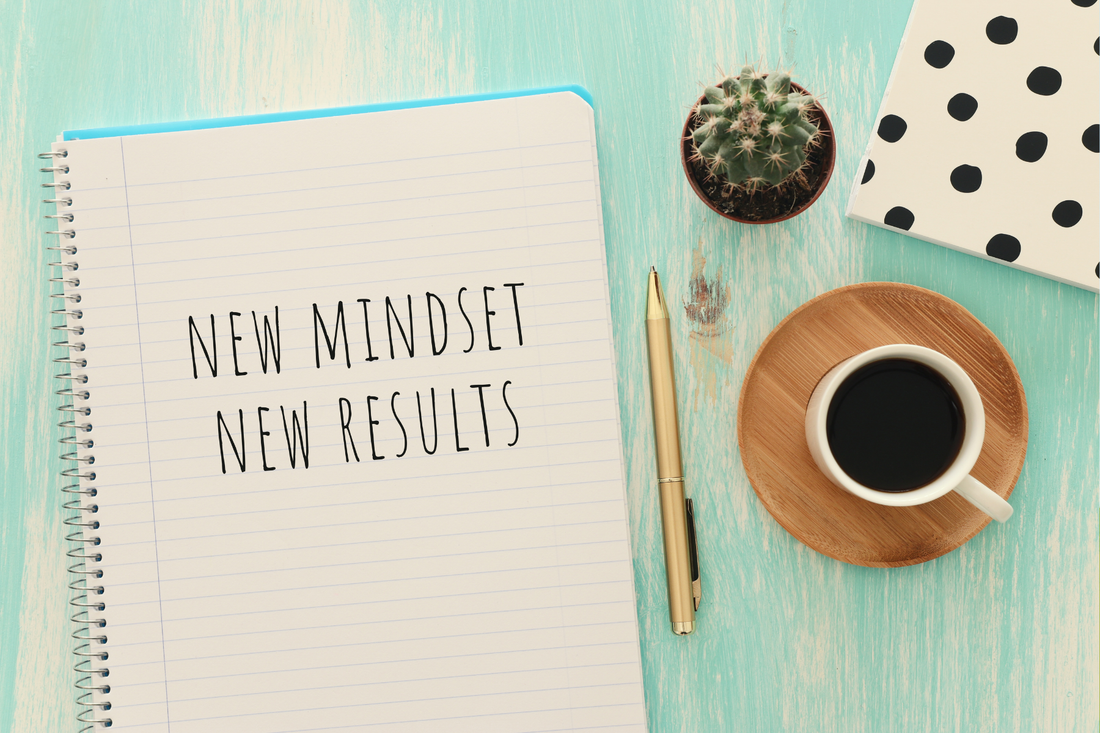
How to Start a Mental Health Journal
Share
You know how sometimes your mind feels like a tangled mess of thoughts and feelings? That’s where mental health journaling can help. Think of it like having a
conversation with yourself on paper. Writing down what’s on your mind can help you understand your feelings and find clarity.

The best part is there’s no right or wrong way to do it. Maybe you had a crazy day at work and need to vent, or maybe you're trying to figure out why you feel stuck. Just grab a notebook and let it all flow. Over time, you might notice things like "oh, I always feel down after hanging out with this person" or "wow, I'm actually handling stress better than I thought!"
It’s like having your own space to reflect and sort through your thoughts, helping you understand yourself better—all in a laid-back, casual way... and in your PJs if you want. Plus, looking back at your journal entries can remind you how much you’ve grown. It’s amazing how something as simple as journaling can help you feel more connected to yourself.
How Can Mental Health Journaling Help You?

Journaling is one of those small but powerful habits that can make a big difference for mental health. It's one of those simple habits that can really transform how you handle life's ups and downs. Let me share why it works so well.
Think of mental health journaling as creating a private space where you can be completely honest with yourself. When you're dealing with complicated emotions or tough situations, getting everything out on paper helps clear your mind. It's remarkable how writing things down can turn a jumble of feelings into something you can actually understand and work through.
One of the best parts is how it helps with stress. We all carry around mental weight - work pressures, relationship challenges, daily worries - and journaling gives you a way to set some of that down. It's like taking a deep breath for your mind, helping you feel more centered and calm.
What's fascinating is how mental health journaling becomes a window into your own patterns and behaviors. You might notice that certain situations consistently boost your energy, while others tend to drain you. This kind of self-awareness is invaluable - it helps you make better choices and understand why you react the way you do.
When you make a habit of writing down things you're grateful for or positive experiences you've had, it gradually shifts how you see the world. Even during challenging times, you become more attuned to the good moments that pepper each day.
And when you're facing problems or trying to reach goals, journaling helps break things down into manageable steps. Instead of feeling overwhelmed, you can work through challenges methodically, tracking your progress along the way.
It's a simple practice, but the impact can be profound - helping you process emotions, reduce stress, and grow in ways that really matter.
Get Started
Starting a journaling practice can transform your daily life, and getting started is simpler than you might think. Whether you're looking to process emotions more
effectively, reduce stress, or develop deeper self-awareness, this guide will help you build a sustainable journaling practice that fits naturally into your routine.

We'll explore practical techniques and proven approaches that make mental health journaling both accessible and meaningful. From structured prompts to creative exercises, you'll discover methods that resonate with your personal style and goals. The focus isn't on perfection, but on creating a valuable tool for personal growth and reflection.
Let's explore how to develop a mental health journaling practice that supports your well-being and helps you navigate life's challenges with greater clarity and purpose.
Steps to Start

First: Know Your Why
Think about what you want to get from mental health journaling. Maybe you want to feel less stressed, understand your feelings better, improve your mood, work through emotions, or just keep track of your thoughts. Having a clear reason will help you stick with it when you're not feeling motivated.
Second: Pick a Time
Making mental health journaling a regular part of your daily routine helps turn it into a natural habit that stays with you. Choose a time that works best for you. Whether it’s a few quiet minutes in the
morning when your mind is fresh, a wind-down session in the evening, writing before bed to reflect on your day, or a weekly check-in. Begin with just a few minutes each time, and let your practice grow naturally.
Third: Start with Simple Prompts
Consider starting with these simple prompts that make getting started easier:
- “What made me feel happy or grateful today?”
- “What emotions did I experience today, and why?”
- “What made you smile today?”
- “How are you feeling right now and why?”
- “What's something you're looking forward to?”
- “How do I feel about [specific topic]?”
These easy prompts help you reflect meaningfully while keeping things simple and pressure-free.
Fourth: Just Write
Don't worry about making your writing perfect. Your journal is just for you - no one else needs to read it. Write exactly what you're thinking, like you're talking to a trusted friend. Spelling mistakes and messy handwriting are totally fine.
Look Back and Reflect

Every now and then, read what you wrote in your older entries. You might notice interesting patterns about how you think and feel, or see how you've grown and changed. It's like looking at old photos, but instead of seeing how you looked, you see how your thoughts have changed.
Remember, there's no "right way" to keep a journal. Your journal is personal to you, and what works best is whatever helps you express yourself and feel good about writing.
Choosing a Physical or Digital Journal?
Let's look at both options to help you choose what's best for you.
Physical Journals

Writing in a physical journal feels different - there's something special about putting pen to paper. It can help you focus better and be more creative by offering an artistic, sensory experience, allowing for doodles, colors, and expressive handwriting. Plus, you don't have to worry about batteries or internet connection! The downside? You have to carry it with you, and if you lose it, those words are gone forever.
Digital Journals
Using your phone or computer to journal means you can write anywhere, anytime. It's easy to fix mistakes, find old entries, and you won't lose your writing if something happens to your device. The downside? Digital journaling can contribute to screen fatigue, and pop-up notifications or alerts may distract you, making it harder to stay present and interrupting your writing flow.
Mix and Match
Here's a neat idea: you don't have to pick just one! Many people use both. They might write in a physical journal when they're feeling creative or want to really focus, and use their phone when they're out and want to quickly write down their thoughts.
The best choice? It's the one that feels right to you and fits into your daily life. Try both and see what works - there's no wrong answer!
Final Thoughts

Mental health journaling offers a simple but effective path to better well-being. Through clear intentions, consistent practice, thoughtful prompts, and regular reflection, you'll develop a valuable tool for managing emotions and understanding yourself better. Remember, your mental health journal is a
personal space that adapts to your needs - there's no single correct approach. As you begin, trust that the process will naturally evolve into something meaningful and supportive for your mental health journey.
Why not start today? Grab a notebook, find a quiet moment, and write down three things on your mind. Your future self will thank you for taking this first step.
Mental health journaling is a valuable tool that can help you understand your emotions, handle stress, and track your personal growth. While many find it helpful for managing daily challenges and building self-awareness, it works best as part of a broader approach to mental well-being. For more serious concerns or persistent struggles, consider combining journaling with professional support. A mental health provider can offer expert guidance and additional strategies tailored specifically to your needs.












